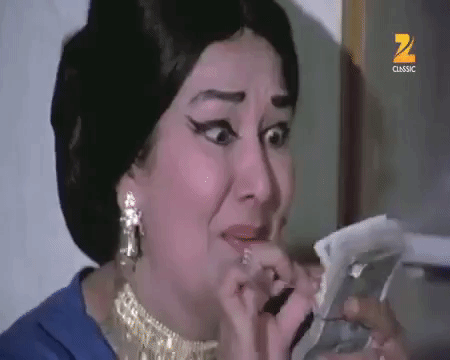September 22, 2021
either/view ⚖️
Dairy drama
To: either/view subscribers
Good morning. Do you have the habit of collecting old coins? You might then have a chance of earning a huge sum of money.
One rare coin of ₹1 fetched ₹10 crores at an online auction. This coin was worth so much as it was issued in 1885 during the British Raj in India. If you are still collecting coins, check your collections and if you find ₹5 or ₹10 with a photo of Mata Vaishno Devi, you can earn a bigger amount. So, here’s our pro tip – become a coin collector and earn millions.

📰 FEATURE STORY
Lakshadweep: No meat in school meals, dairy farms shut

The mid-day meal scheme is a very effective scheme where kids, even those who cannot afford healthy foods, will be able to get foods that are nutritious and healthy. Similarly, consumption of dairy products is also a rather normal routine for us. However, in January, the Lakshadweep administration banned the use of meat in mid-day meals and closed dairy farms. This created a furore in the islands. People condemned this move and called it a violation of our rights.
In a recent turn of events, Kerala High Court rejected a plea that challenged these orders of the administration. This has been a huge boost to the government as it lifted the interim stay on the orders. The government argued in the court that they had made such policy decisions only for the right reasons and the HC found the argument justified.
Context
A change in leadership will bring about a lot of changes in society. The people of Lakshadweep experienced the same. In December 2020, Praful Khoda Patel took charge as the administrator of Lakshadweep islands, following the death of the then administrator. He has brought in a slew of reforms that have received opposition from the people.
The two major highlights were the removal of meat from school mid-day meals and the shutting down of the two dairy farms run by the Department of Animal Husbandry in the islands. Several people, politicians and personalities, both in Lakshadweep and Kerala, voiced out against these orders. Following this, a plea was filed by Ajmal Ahamed, a resident of the islands, challenging these orders. After hearing this Public Interest Litigation, the Kerala High Court put an interim stay on the two orders passed by the administration on June 22.
The bench comprising Chief Justice S. Manikumar and Justice Shaji P. Chaly gave the government 2 weeks time to submit a counter-affidavit. In July, the administration filed a counter-affidavit justifying its reasons. It also requested for the stay to be lifted and asked that the PIL be rejected.
The Kerala High Court took a decision after listening to both the petitioner’s argument and the counter affidavit. Last Friday, it dismissed the PIL that challenged the decision and lifted the temporary stay it had put on these orders. Now, we will deconstruct how and why people think the orders are wrong but the government asserts that the orders are reasonable.
The orders infringe our rights
Even before the petition was filed, several people condemned the orders of the Lakshadweep administration. People complained that the administrator used authoritarian means to pass the policies. One of the key concerns of the residents was that the orders were implemented without much deliberation and consultation. They asserted that these decisions were a part of the administrator’s ‘ill-motivated intention to implement his hidden agenda’.
The opposition parties were also irked by his decisions. They accused him of destroying the local heritage and harassing locals. Some also claimed that these measures had a communal angle and that the administrator Patel has been targeting the island’s large Muslim population. They all called for his removal from the post.
Ajmal Ahmed’s petition claimed that the reforms may impinge upon the guaranteed constitutional rights and may affect the culture of the island. In relation to the dairy farms, the petitioner alleged that the administrator has closed the dairy farms run without giving proper reasons. It was further alleged that the administrator prioritised the closing down of these farms and attacked the food habits of the islanders.
The petitioner claimed that the closure was a part of the intention to implement a proposed ‘Animal Preservation (Regulation) 2021’. This bans the slaughter of cows, calves and bulls. The submitted statement read that the closing down would result in the curtailment of milk products and the islanders could get milk only by purchasing the imported products from Gujarat. This way, the administration is trying to promote dairy products of a Gujarat-based firm.
The ban of meat products, including chicken, from the mid-day meals plan, also drew flak. People were worried that banning such products would result in students receiving less nutritional benefits. People mentioned that both the orders infringe the constitutional right guaranteed under Articles 19 and 21 and 300A of the Constitution of India. Hearing these arguments of the petition, the HC put a temporary stay on these orders.
The orders are well-intentioned
The administration submitted a counter-affidavit in the court. It had its own reasons to ban meat products from mid-day meals. It justified its decision using three arguments. First off, there is no hard and fast rule that the government should not provide a completely vegetarian mid-day meal. As long as the meals meet the stipulated nutritional requirements, the menu is good to go with. Secondly, it cited examples of other states that produced the vegetarian menu – West Bengal, Goa, Puducherry and the Andaman and Nicobar Islands.
While these arguments justify that the reform falls well within the legal system, the final argument explains why such a change was made. The administration argued that most of the households in the Union Territory consume meat and chicken on a regular basis. So, it decided to omit them and instead, provide fruits and dry fruits which are consumed less when compared to meat and chicken.
While arguing against the closure of dairy farms, the petitioner had claimed that the islanders were engaged in animal husbandry related activities. However, the administration has called this incorrect. It asserts that green fodder is scarce in the UT and animal husbandry activities are neither popular nor common here.
Justifying the shutting down of the dairy farms, the administration mentioned that running of the two dairy farms has resulted in a loss of ₹1 crore annually. Both farms combined, there are only 34 animals each and the daily milk production is 170 litres. It caters to the needs of only 300 – 400 people among the over 20,000 population of the islands. Going by the numbers, the total loss incurred in 2019-20 was ₹94.8 lakh and 2020-21 was ₹92.5 lakh.
Clarifying these, the administration argued that the Court cannot interfere in such policy decisions taken by the administration. The Court was also convinced with this argument and dismissed the petition. It has also lifted the interim ban. With this judgement, all PILs against these administrative reforms have been disposed of by the HC in favour of the administration.
🕵️ BEYOND ECHO CHAMBERS
For the Right:
Modi govt’s e-Shram takes digital literacy as granted. Won’t help unorganised sector workers
For the Left:
The Call to Ban Savarkar and Golwalkar from the Classroom Reflects Culture of Intolerance
🏴 STATE OF THE STATES
Cop turns politico (Manipur) – All eyes are on Thounaojam Brinda, an ex-super cop in Manipur, as she will now contest in the Manipur General Elections 2022. It’s reported that Brinda will stand from the Yaiskul Assembly Constituency. Seeing Brinda enter politics is an interesting scenario, as the cop has a history of being in loggerheads with the state’s Chief Minister N Biren Singh. Brinda was praised for solving a drugs haul case and curbing smuggling activities in 2018. She had received a Gallantry award for her contribution. But she returned the award after Lhukosei Zou, one of the arrested in the drugs case, was acquitted. She alleged that Zou was released because of the CM’s pressure and that’s why she returned her award. With the entry of a fearless cop, we are super thrilled to watch the upcoming elections.

Pot of luck (Kerala) – To this day, lotteries and lucky draws have a huge fan base in Kerala. The Onam Bumper Lottery takes place every year under the helm of the Kerala state lottery department. This year’s jackpot-winning ticket is worth a whopping high amount of ₹12 crore. After the results were announced on Sunday, there were rumors that an NRI had won the lucky draw. But the rightful owner of the ticket was identified as the Kochi-based autorickshaw driver Jayapalan. Jayapalan had invested ₹300 on a single lottery ticket, in hopes that he would pay back his debts with the lottery win. He would now be the recipient of ₹7.39 crores, which is the final amount after all deductions. The lucky wind was definitely blowing in his direction!
Dignified dining (Madhya Pradesh) – One of the stellar schemes of the government is the midday meal scheme for students in government schools. But the state government identified one problem with the program. Children were made to sit on the ground to eat their meals. Unhappy with this, the Madhya Pradesh government has decided to install dining tables in government schools to ensure students dine with dignity. It will raise the standards of the school and also help groom the personality of the student. Students will also be taught how to use cutleries, napkins, etc. Such small initiatives will go a long way in building a fair society, don’t you think?
Digital groceries (Bihar) – If someone were to say you can become an entrepreneur without investing money, will you believe it? Listen to Bihar’s Suman Kumar Jha and think again. Jha has created a chain of digital grocery stores that provide doorstep delivery for customers. He has developed the ZILA Community Leadership app, where unemployed youth are roped into this service. Without setting up a physical store, the partners can earn about ₹5,000- ₹15,000 per month. The only requirement is one’s smartphone and digital accessibility. So far, Jha has delivered over 10,000 orders worth ₹10 lakh within seven months. He is now in talks with the state government to extend the services and hopefully use this as a means to end unemployment in the state. An app to end unemployment and transform grocery shopping in villages? Yes, we are hooked on this idea.
Man of importance (Gujarat) – The new Gujarat cabinet houses many interesting ministers. One minister, in particular, has bagged the same number of portfolios as Chief Minister Bhupendra Patel. With nine portfolios in hand and a major responsibility on his shoulders, 38-year-old Harsh Sanghavi is the most sought-after minister. Sanghavi who has many laurels to his name is known as a relentless political leader who is into social work. Currently, he has been allocated the portfolios of Home, disaster management and police housing; Minister of State in sports, youth and cultural activities, NRI, excise and prohibition, border security and prisons.
🔢 KEY NUMBER
46 – India’s rank in the Global Innovation Index 2021. The list shows India is leading the world in Information and Communication technology services and is among the top countries in domestic industry diversification. When compared to last year, India has climbed two spots in the list.

